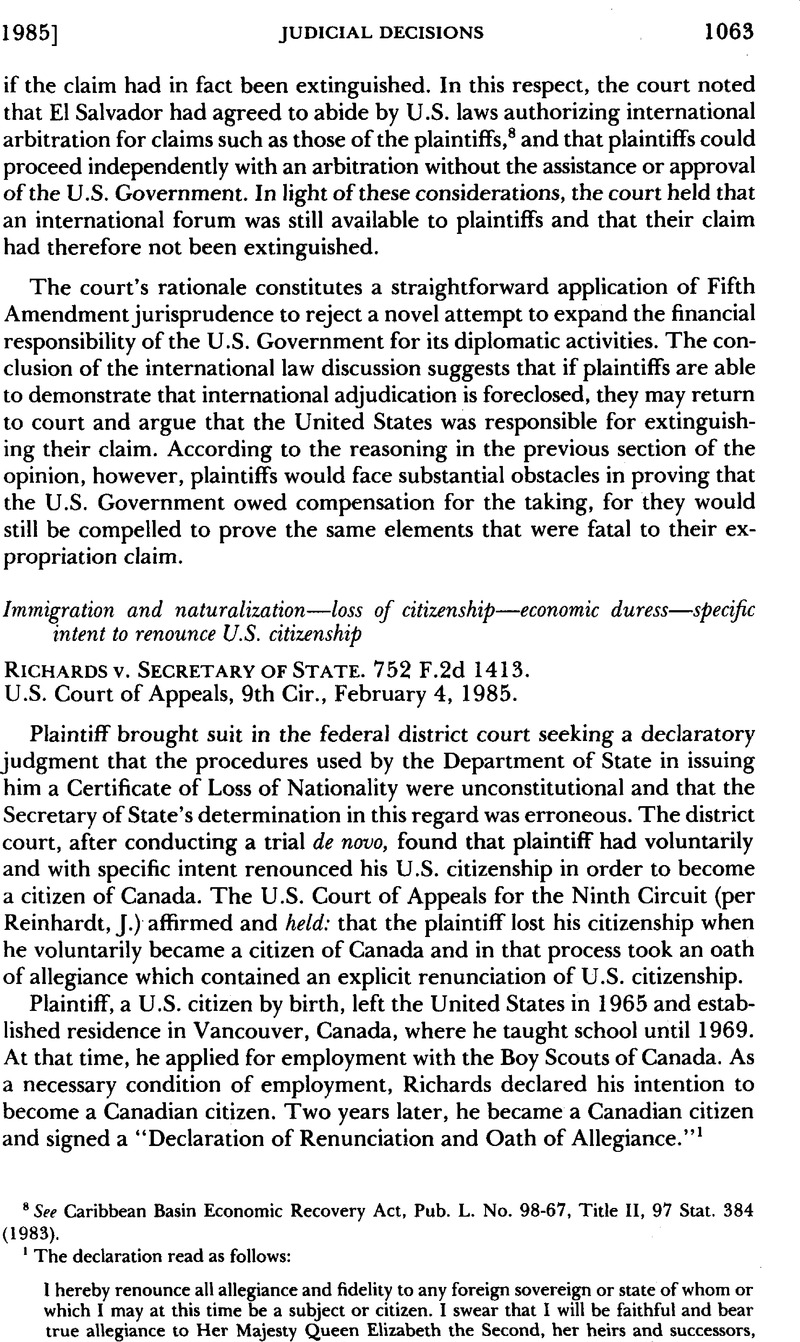No CrossRef data available.
Published online by Cambridge University Press: 27 February 2017

1 The declaration read as follows:
I hereby renounce all allegiance and fidelity to any foreign sovereign or state of whom or which I may at this time be a subject or citizen. I swear that I will be faithful and bear true allegiance to Her Majesty Queen Elizabeth the Second, her heirs and successors, according to law, and that I will faithfully observe the laws of Canada and fulfil my duties as a Canadian citizen so help me God.
752 F.2d 1413, 1416.
2 444 U.S. 252, reh’g denied, 445 U.S. 920 (1980).
3 18 U.S.C. §1481(c) provides in part:
[A]ny person who commits or performs, or who has committed or performed, any act of expatriation under the provisions of this chapter or any other Act shall be presumed to have done so voluntarily, but such presumption may be rebutted upon a showing, by a preponderance of the evidence, that the act or acts committed or performed were not done voluntarily.
4 The court relied on Afroyim v. Rusk, 387 U.S. 253, 268 (1967), which held that a U.S. citizen possesses “a constitutional right to remain a citizen . . . unless he voluntarily relinquishes that citizenship.” 752 F.2d at 1418.
5 See, e.g., United States v. Matheson, 400 F.Supp. 1241, 1245 (S.D.N.Y. 1975), aff’d, 532 F.2d 809 (2d Cir.), cert, denied, 429 U.S. 823 (1976); Terrazas v. Haig, 653 F.2d 285, 288 (7th Cir. 1981).